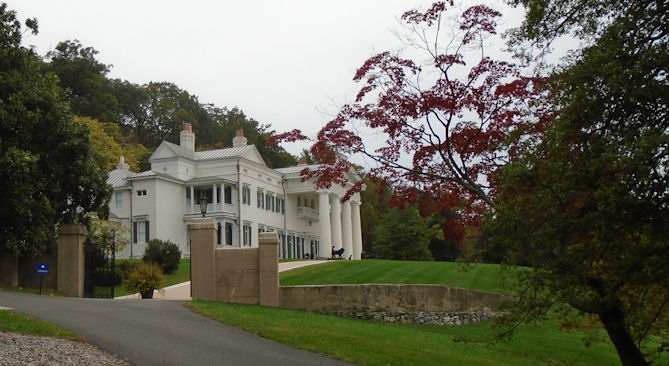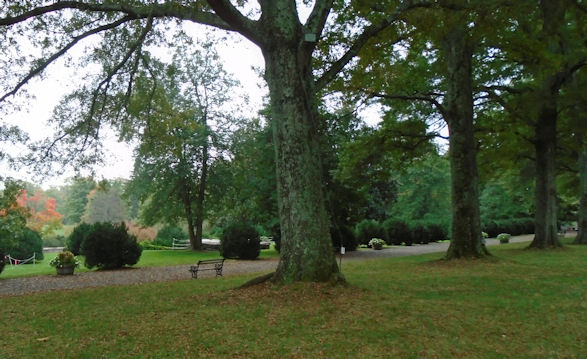
Westmoreland Davis lived a long and interesting life. He was born into a rich Virginia family that had most of its money investing in Virginia state bonds just before the Civil War. It seemed like a good safe investment. His father died and left his mother with those bonds and not much else. But Westmorland came back. He got a full-scholarship to VMI and then went to UVA and Columbia to study law, went into the law and made a fortune. After he made his fortune in the law, he decided to do something completely different and become a farmer.

Loudon County in those days was a backward, rural area with soil depleted by poor farming practices and tobacco. Most of the farmers still practiced farmed the way their grandfathers had but with less to work with. It was not an auspicious place to start, although I suppose no experience in farming might be a bit of an advantage when those with experience are doing things wrong.
There were other pluses. Westmorland was well-financed. He wanted his farm to make money, but it really didn’t need to. But his biggest advantage was his scientific mind. He scanned the world for best practices, tried them out in Virginia, improved them and then shared them with his neighbors.
Besides providing a good local example of what could work, his main vehicle to communicate was a magazine called “The Southern Planter.” In this, he discussed what he had learned and he never wrote about anything he had not understood or tried himself. He brought in better quality animals, including Guernsey cows to improve Loudon dairy herds. Among his biggest contributions was more extensive liming of the soil. Liming to sweeten soil was understood, but imperfectly. Westmorland discovered that it took a lot more than most people thought, or could afford, so he also worked with suppliers and railroads to lower the costs.
Besides farming, Westmorland’s passion was fox hunting. He was the master of the hunt, which meant that his job was to get permission from local landowners to cross their land and offer compensation for any damage. This and his farming examples put him in touch with lots of people and he became locally famous and well-esteemed. Which helped in his next unusual career move; he ran for governor of Virginia. And he won. He came into office at an interesting time, in 1918 just as the U.S. was getting into the full swing of World War I. Of course, troops from Virginia were participating.
Virginia governors, then as now, can serve only one four-year term. After his term, Westmorland ran unsuccessfully for Senate and then returned to his farming. He became one of America’s leading producers of turkeys.
I learned about this great man who I had never heard of before when I went with Alex to visit Morven Park, his home in Loudon County. As part of Alex’s classes on preservation, he has to visit various local historical sites in order to analyze how they are presented. My pictures show the outside of the Morven Mansion. Taking pictures inside was not allowed. Pity. Westmorland traveled the world and collected all sorts of things. The house is kind of a museum. It is very pleasant and bright. He had a whole wall of Flemish tapestries that were very nice, but you can imagine some of furniture in the collections on the set of the Adam’s family.
